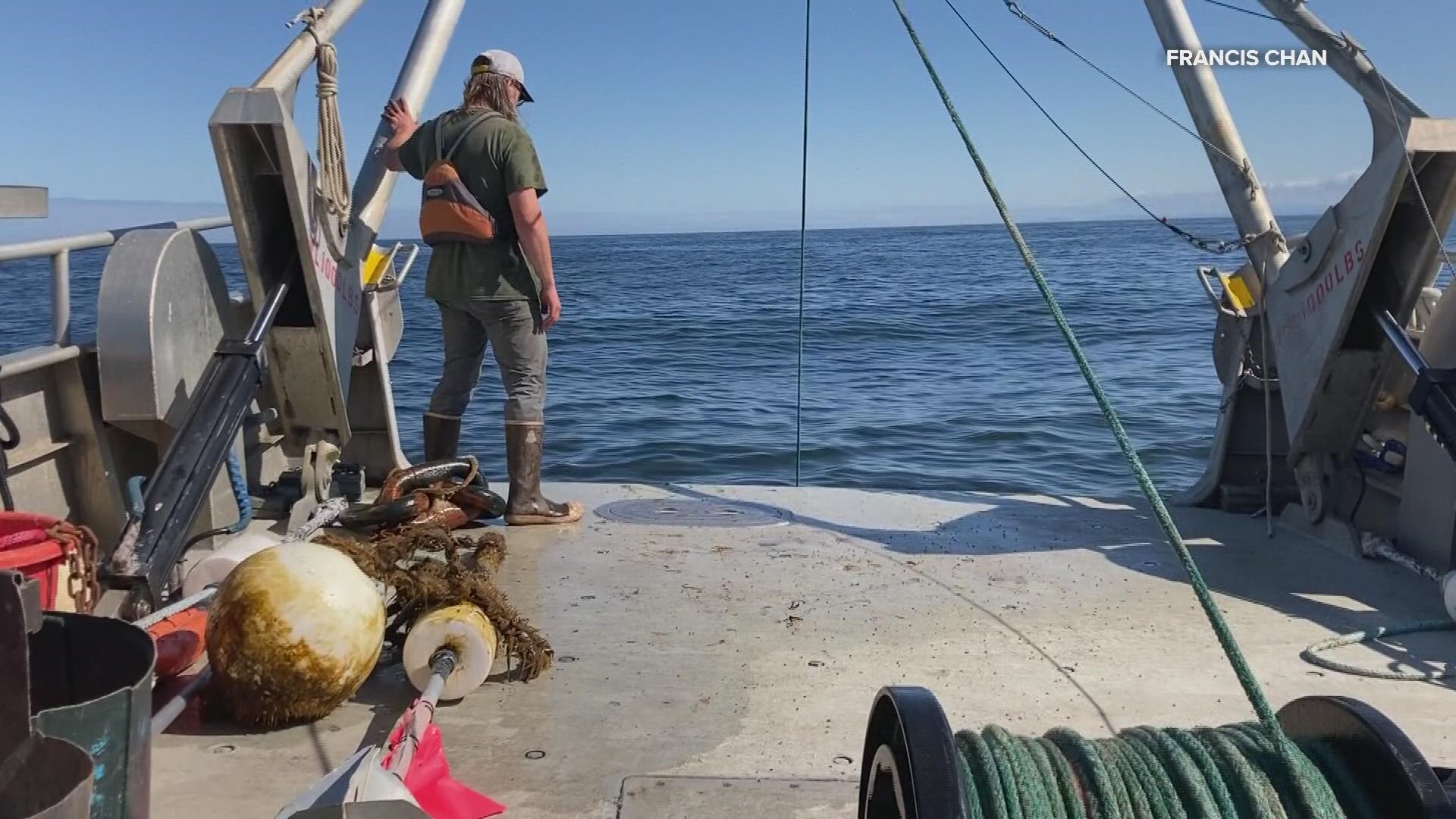PORTLAND, Ore. — It was during a routine trip to round up underwater instruments that Oregon State University marine ecologist Francis Chan discovered something he didn't expect.
"It was really surprising," he recalled. "Oxygen levels were still really low and, in fact, what I saw just last week was the lowest that we've seen this year."
When oxygen in the water drops to or near zero, the area is often called a dead zone. They happen when the winds create upwelling and causes the oxygen levels in the ocean to drop so low that marine life can't survive.
"It turned out to be a really bad year," Chan said.
Chan has been tracking dead zones for more than a decade. Back in spring he correctly predicted a dead zone for this summer.
"We thought we might see this and unfortunately we were right," he said. But what Chan didn't predict was just how long it would last.
"Low oxygen—it started back in April. So it's been months and months and months and... that's a really long time to hold your breath," he said.
Chan also didn't realize how far it would reach.
Last week, OSU oceanographer Jack Barth was conducting research off the Central Washington coast when he too found very little oxygen in the water.
"I think this late in the season, we expected change to come and the winds to shift, maybe wash out some of that low oxygen water, but that hasn't happened yet," he said
The result is a change in the ocean. Sea life, like crabs, have been moving to shallower areas. It's causing a reshuffling of sorts in our ocean.
"It really does affect how those populations are distributed along the coast, and therefore now as we go out to fish, either commercially or for fun, things are disrupted," said Barth.
"I think the thing that is worrisome is that this kind of warmer, more summery weather, that's the shape of things to come with climate change," said Chan.
It's a change these scientists expect will become the norm in our changing climate. Meantime, they are just hoping the fall storms return things to normal, at least for a while.
"Hopefully the next time I talk to you, I can tell you that the 2020/2021 hypoxia season has ended," said Chan.

